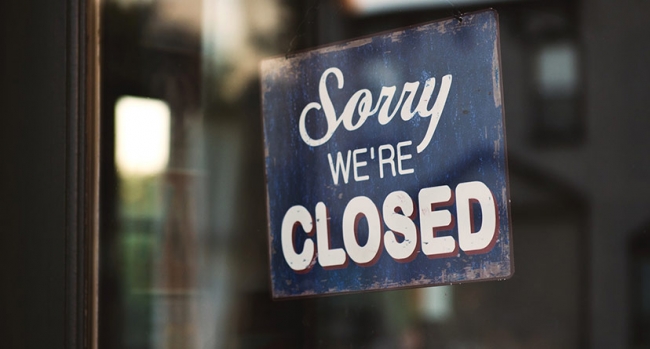Saving Main Street in the Wake of COVID-19
Strengthening CDFIs is essential for helping businesses and communities rebound from the pandemic
Published 04-22-20
Submitted by Mastercard

Mastercard Center for Inclusive Growth
As Americans are bracing for the health fallout from the COVID-19 outbreak, the nation’s Main Street businesses are fighting for their survival. Salon owners, event planners, shopkeepers and restaurants are being forced to make hard choices—pay their bills or their employees—and the workers who rely on them for their livelihoods face prolonged economic hardship.
Why saving small businesses matters
Small businesses are the backbone of the U.S. economy. Under the most expansive definition, small businesses account for nearly half of the nation’s employees and almost 65 percent of new jobs created. Owning a small business is also associated with faster wealth-building. Since 1990, families in which the head of the household was self-employed—the majority of whom owned small businesses—had a median net worth four times that, on average, of households in which the head worked for someone else.
But with just 27 days of cash on hand, on average, many small businesses are in triage mode as they are forced to shutter their doors.
Emergency help for small businesses
Congress’ $2 trillion CARES Act has given small businesses a $350 billion lifeline. The package offers “paycheck protection” with eight weeks of cash flow assistance via guaranteed loans. The loans are forgiven when an employer uses the money to maintain payroll for the duration. The Small Business Administration (SBA) will also pay the principal, interest and fees on existing SBA loans for six months. Independent contractors and the self-employed are also now eligible for unemployment insurance and the benefits extend longer and include a $600 per week supplement to the regular unemployment check through the end of July. While these measures provide some immediate relief, it will take a massive distribution effort by the SBA and banks to get the relief to small businesses in time.
It will take a massive distribution effort by the SBA and banks to get the relief to small businesses in time.
Tapping into local “economic shock absorbers”
As the primary financial institutions serving Main Street businesses, Community Development Financial Institutions (CDFIs) are well-positioned to partner with banks to ensure relief efforts reach local entrepreneurs and help their businesses rebound over the longer term.
CDFIs are private, usually nonprofit, mission-driven banks serving low- and moderate-income communities. They lend to the micro and small businesses that are unable to qualify for loans from larger financial service providers. Industry estimates suggest that there is an $87 billion annual market gap in loans less than $100,000 for small businesses.
In times like these, CDFIs are the first responders on the scene. During the 2008 financial crisis, for example, CDFIs became the economic shock absorber when traditional financial institutions slowed lending to small and micro businesses. CDFIs are funded by philanthropy and financial institutions motivated by the Community Reinvestment Act requirements. As of 2018, there were more than 1,100 CDFIs serving cities, rural areas and Native American reservations.
Expanding digital innovations to extend the reach of CDFIs
Recognizing the vital role CDFIs can play in building resilient communities, the Center for Inclusive Growth has partnered with leading CDFI organizations like Grameen America, Accion Opportunity Fund and Community Reinvestment Fund USA (CRF) to help them integrate digital technologies to serve a greater number of micro and small businesses.
Promoting responsible lending practices will also be critical to ensuring business owners don't get caught up in predatory schemes in the wake of the crisis.
In the coming months, CDFIs will need innovative tools and solutions to help communities on the path toward an inclusive economic recovery. Here are five ways technology and partnerships can help transform and strengthen this vital sector:
Better connect entrepreneurs to loans that meet their needs.
For those businesses that do not qualify for traditional financing, online marketplaces like Connect2Capital from CRF are matching micro and small businesses with CDFIs that can provide responsible loans that fit their business needs. Connect2Capital also partners with banks and traditional lenders and can refer businesses that do not meet their qualifications.
Move operations from analog to digital.
Many CDFIs still operate with paper and analog processes. Accion Opportunity Fund recently digitized their back-end loan platform, which has enabled them to expand their capacity to deploy and manage loans across the country. Smaller, less-resourced CDFIs can use platforms like CRF’s SPARK, which offers an off-the-shelf solution for managing the loan origination process.
Integrate technology to deliver and service loans with speed.
Moving to digital payments can help speed disbursements to business owners and help them stay competitive in an increasingly cashless economy. During the current crisis, digital payments have enabled Grameen America to continue disbursing same-day loans. Their peer support model has also continued uninterrupted as their members moved weekly meetings from in-person to online.
Help CDFIs diversify their capital sources.
CDFIs have traditionally been financed by banks, government and philanthropic organizations. Innovative platforms like CNOTE are making CDFI investing easier and more accessible to a broader pool of impact investors.
Use data and analytics to automate underwriting.
CDFIs offer affordable loan products using flexible underwriting standards, often taking into account alternative data sources conventional lenders do not consider. Building CDFIs’ capacity to integrate advanced data analytics could help automate their underwriting processes to reach and serve more loan customers.
Promoting responsible lending practices will also be critical to ensuring business owners don’t get caught up in predatory schemes in the wake of the crisis. Currently, small business borrowers are not afforded the same protections as consumers against predatory lending. Following the Responsible Business Lending Coalition’s call for transparency around pricing and terms, inclusive access and fair collections practices are first steps. CDFIs demonstrate that fair practices, reasonable product structures and pricing models provide a foundation for the smallest businesses to grow.
A commitment to supporting small businesses’ financial security
In response to the COVID-19 crisis, Mastercard has committed $250 million, including financial, technology, product and insight assets to support the financial security and vitality of small businesses and their workers in the United States as well as other markets where the company operates.
This includes programs to strengthen and support financial service providers who serve micro and small businesses. It also provides small business owners with products to enhance their protection against cybersecurity threats and identity theft as they move their operations online. And it offers market insight tools to better understand consumer spending trends in their communities.
As the world confronts an unprecedented global economic shock, no one organization will be able to address the magnitude of the fallout on its own. The resources needed to save businesses and rebuild the economy demand collective effort.
At the Center for Inclusive Growth, our efforts will continue to tap into Mastercard’s deep multi-sector partnerships and the expertise of nearly 17,000 Mastercard employees, along with philanthropic grants through the Mastercard Impact Fund. Through these efforts, we will continue to support businesses and their workers as they recover from the pandemic and seek to become even more resilient in the new, digital economy.

Mastercard
Mastercard
About Mastercard
Mastercard is a global technology company in the payments industry. Our mission is to connect and power an inclusive, digital economy that benefits everyone, everywhere by making transactions safe, simple, smart and accessible. Using secure data and networks, partnerships and passion, our innovations and solutions help individuals, financial institutions, governments and businesses realize their greatest potential. With connections across more than 210 countries and territories, we are building a sustainable world that unlocks priceless possibilities for all.
More from Mastercard

